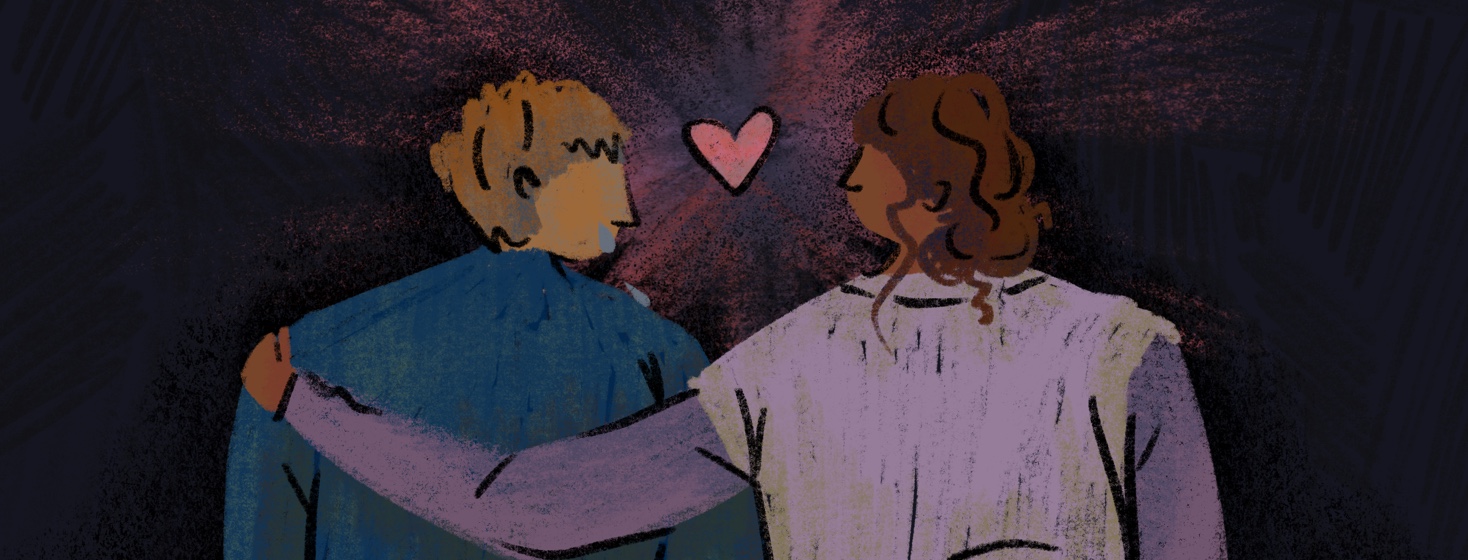Empathy, Cancer, and Caregiving: What Do They Have In Common?
Empathy is the ability to understand and share the feelings of another. I find myself relating to many of the complex feelings and understandings of the advanced breast cancer community because of my personal experience with stage 3, hormone positive breast cancer and my history in advocating and caring for my son who was born with a rare genetic condition.
I wanted a cure
In 2005, I delivered my third child. He was a healthy baby boy from a normal pregnancy weighing a bit over 7 pounds. We took our son home knowing that he had failed his newborn hearing test and were told that it was fluid from the delivery and not to worry but to have that test repeated sooner, rather than later.
That repeat test would also show moderate to severe hearing loss, which started our journey of seeing specialist after specialist and therapist after therapist. Fast forward to November of 2008, when we learned that our son had a rare genetic deletion on his fifth chromosome, called Bosch-Boonstra-Schaaf optic atrophy syndrome (BBSOAS).
I traveled the country in search of a cure for my son’s rare diagnosis, not knowing what his future held. I remember being told by a nurse practitioner in our neurologist office to take him home and love him, that love was the best medicine of all. I understood what she was saying but I desired for more than the love my husband and I could give him. I wanted a cure to his brain and genetic condition. I wanted medication that would work against his Epileptic seizures. I wanted to provide him the ability to have a normal life and go on his first date, learn from his sisters about kissing a girl for the first time and watch him play sports. This is the life I had to leave behind a long time ago. Medicine failed us and I was on a journey, as a caregiver, to provide the best care I could for as long as possible.
Diagnosed with breast cancer
Fast forward again to the summer of 2013, at the early age of 39 years old, and one month prior to my 40th birthday, I was diagnosed with breast cancer after finding a lump in my left breast. After seeing my OB/GYN, who had delivered all three of my children, I was sent for a diagnostic mammogram.
In the same day, I had the mammogram, ultrasound, and biopsy. The following Tuesday, after the Memorial Day holiday, I received the call that I had breast cancer. It was invasive and they recommended I see a surgeon and oncologist as soon as possible. My first surgery would take place mid-June.
My journey was a long one and consistent of chemotherapy, radiation, multiple surgeries, a clinical trial and today I continue to take an aromatase inhibitor to prevent the hormone Estrogen from circulating throughout my body and aiding any rouge cancer cells from growing. I live with fear knowing that I have a higher risk of recurrence but attempt to not let it consume my life.
"I thought you have cancer?"
People came out of the woodworks to help us during the time that I was undergoing treatment for breast cancer. I felt very loved and supported from family and friends. And then there were people who looked like they had seen a ghost when they saw my husband and I out in public enjoying ourselves as if life had never thrown us cancer and a child with a disability.
I even had one lady come up to me and say, “You look great, I thought you have cancer?” This was in front of my 8 year old daughter as well.
Sharing in the journey
Today, I am 12 years from my original cancer diagnosis and I continue to advocate for our son, while also advocating for myself and those living with metastatic breast cancer.
I understand my risk of recurrence and I know that love, while a wonderful and supportive factor in recovery from any health condition, is not enough. You must have a resolute and compassionate medical team who is willing to go the extra mile for your outcomes.
My experiences in both arenas have taught me that people, while well intentioned, can say stupid things, they can do or not do what you want or need from them and unless people are walking in your shoes, they just do not understand.
I believe some people can be empathetic towards others living with advanced or metastatic breast cancer. They can share in your lifelong journey. Sometimes it will be filled with sadness and grief and sometimes it will be filled with laughter and hope. Hold on tight to the people who will be with you through all of it. This is love. Maybe it is the greatest gift after all?

Join the conversation